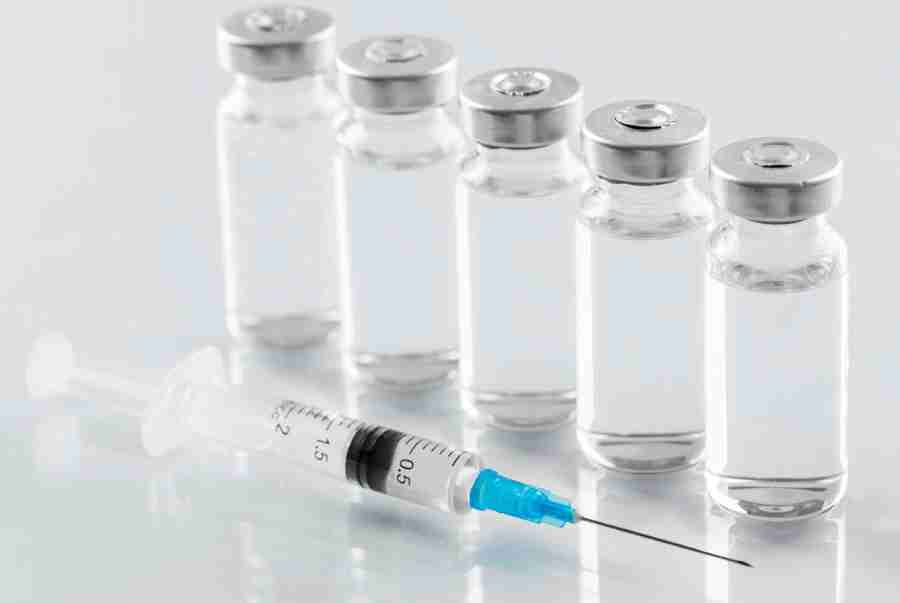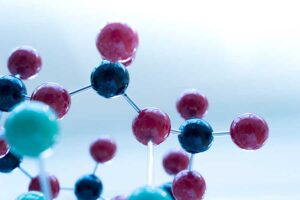
The Complete Guide to HGH for Women | Everything You Need to Know

Human growth hormone (HGH) plays a crucial role in the human body. From maintaining normal structure and composition to regulating metabolism, it serves a number of important functions. When growth hormone levels begin to drop in women, HGH treatment becomes necessary.
However, before you go ahead and begin your hormone replacement therapy, it’s important to first understand what human growth hormone does in the body, what normal levels of HGH are, and potential HGH benefits and risks.
What Is HGH?

Before we talk about how to use this hormone for women, let’s first answer the question, “What is HGH?”
Human growth hormone, which is also commonly known as somatotropin, is a hormone that occurs naturally in the body. It is produced by the pituitary gland, located at the base of the brain. Several other hormones, such as insulin-like growth factor, also regulate HGH. In the early years of a person’s life, this hormone is critical, as it facilitates growth and development.
However, it doesn’t stop there.
In adults, HGH regulates body composition, sugar and fat metabolism, and the proper growth of muscles and bones. It also facilitates proper heart function.
The truth is that HGH production peaks during adolescence and progressively decreases as you age. Because of this, growth hormone replacement therapy has gained the spotlight as a way to enhance overall health.
A Closer Look at the Pituitary Gland and HGH Formation
To truly answer the question, “What is HGH?” it’s important to consider the
Hormones are essentially chemical messengers that communicate with various tissues. They travel through your bloodstream to regulate a number of bodily functions. The female body produces over 50 different hormones, many of which interact with each other.
Your pituitary gland is located beneath your hypothalamus and consists of two lobes, namely the anterior and posterior lobes. Growth hormone is produced in the anterior lobe.
The hypothalamus and pituitary gland are linked by a network of nerves and blood vessels called the pituitary stalk. Together, these two structures serve as the brain’s central command center, regulating vital bodily functions.
Your hypothalamus is responsible for controlling processes such as digestion, heart function, body temperature, and more. It also communicates with the pituitary gland through the stalk, instructing it on when to release specific hormones.
This structure uses somatostatin to prevent the release of HGH and growth hormone-releasing hormone (GHRH) to encourage its production.
What Are Normal Levels of HGH in Women?
Now that we have sufficiently answered the question, “What is HGH?” let’s look at what is considered normal.
It’s important to remember that the pituitary gland releases HGH in pulses, which vary depending on your sex, age, and the time of day. Typically, normal growth hormone levels in women range from 44 to 616 pmol/L or 1 to 14 ng/mL. If your HGH levels are below this, you may need to supplement with synthetic human growth hormone. You can try products like Zptropin or Cinnatropin.
Understanding Growth Hormone Deficiency in Women
Human growth hormone is important for a number of reasons in women. However, an HGH deficiency can lead to a number of adverse effects, such as low energy levels, reduced muscle mass, and poor bone density.
It can also cause increased body fat and boost your risk of heart disease. Hypopituitarism is often the reason behind a growth hormone deficiency, resulting in the formation of a non-cancerous tumor known as a pituitary adenoma. It may also occur when there is damage to the hypothalamus or pituitary gland.
However, as mentioned already, this kind of abnormal decline in growth hormone is not the only reason why a woman may need growth hormone therapy. As a woman ages, her HGH levels begin to steadily decrease.
This process may begin in the early 20s when the generation of HGH starts to decline by 10 to 20 percent every 10 years.
Moreover, a woman’s HGH production decreases by 80 percent from her early adult years by the time she turns 50. And, by the time she reaches 60, she hardly produces any growth hormone at all. At this stage, she will likely be diagnosed with adult growth hormone deficiency (AGHD).
Common Symptoms of Human Growth Hormone Deficiency in Adults
Identifying the symptoms of reduced growth hormone levels can be the key to addressing the issue early and preventing any adverse effects. While a deficiency in a child may lead to noticeable symptoms, such as poor growth, adult-onset reductions in HGH often go unnoticed. Let’s look at some of the most common tell-tale signs of low levels of natural growth hormone.
- Energy loss and fatigue
- Poor sleep patterns
- Weight gain
- Muscle weakness
- Reduced libido
- Impaired hair growth
Moreover, adult growth hormone deficiency can also cause psychological symptoms such as:
- Depression
- Anxiety
- Isolation from others
- Loss of interest in normal activities
The Benefits of Synthetic HGH Treatment and How It Works
As we have just seen, an HGH deficiency can lead to a number of concerning effects. The good news is that you can use synthetic forms of the hormone to address these issues.
Here are some HGH benefits that women can expect:
Better Skin and Hair Health
As we have already seen, growth hormones play an important role in regulating the growth of cells. Among them are skin and hair cells. When your HGH levels start to decline, so will the condition of your hair and skin. To address this issue, hormone therapy can be used.
Growth hormones stimulate collagen production, which can result in skin that is more firm and elastic. The result is a more youthful appearance.
Improved Lean Muscle Mass
By encouraging muscle growth and decreasing body fat, synthetic HGH is often utilized to enhance your lean body mass. Women who suffer from age-related muscle loss or who want to improve their physical fitness may find this to be especially helpful.
Synthetic human growth hormone aids in the development and maintenance of muscle tissue by promoting protein synthesis and enhancing the body’s availability of amino acids. This can be incredibly beneficial to athletes who want to maintain their stamina and performance.
Increased Bone Density
As you age, your bones tend to get more brittle. This is a particularly big problem for women. However, by supplementing with growth hormone, you can effectively enhance your bone density and prevent this problem.
Mood Regulation
One of the major side effects of an HGH deficiency is psychological issues. However, when you undergo growth hormone replacement treatment, you can expect to see improvements in your overall mood.
Should You Use HGH for Weight Loss?

As the search for weight loss solutions continues, many propose the use of HGH for weight loss. While it can certainly help to improve lean body mass and reduce abdominal fat, we do not recommend using it purely for losing weight.
It should not be trusted as a magic solution for the reduction of fat. That’s because HGH works by regulating your metabolism and helping your body break down fat, so the results can vary from one person to the next.
Moreover, the use of HGH for weight loss is not without side effects, so it must be done under supervision. If you are looking for something for weight loss, we recommend trying Ozempic or semaglutide.
Your doctor will consider your medical history and conduct tests to determine whether the benefits outweigh the risks in your case.
The Bottom Line

If you are struggling with mood issues, brittle bones, reduced muscle mass, and other symptoms mentioned above, you may have an HGH deficiency. This problem is common in aging women, and the effects can be serious.
However, the good news is that hormone therapy can help to reduce the associated symptoms and provide a better quality of life. If you think that you may need HGH treatment, we recommend first consulting your healthcare provider. He or she will provide expert guidance and help you decide whether this course of treatment is the best for you.
Once you have consulted your doctor, you’ll need to find a reputable supplier of HGH. Well, fortunately, you won’t have to look far. ECBT offers a wide range of products to help meet your needs.
Browse our website, or get in touch with us today to learn more!
Frequently Asked Questions
- Who should consider HGH therapy?
This treatment is best for women who have been diagnosed with growth hormone deficiency or are experiencing the symptoms associated with this disorder. It is best to work closely with your healthcare practitioner to ensure the safe administration of the treatment.
- Are there any side effects associated with HGH treatment?
Yes. Although there are many HGH benefits, you may experience any of the side effects listed below:
- Joint and muscle pain,
- Swelling in the arms and legs,
- Carpal tunnel syndrome,
- Enlarged organs, and
- An increased risk of diabetes.
Because of the side effects, the use of HGH for weight loss is not usually proposed.
- Are there any ways to boost growth hormone levels naturally?
You can try these things to increase your HGH levels without the use of medication:
- Follow a nutritious diet,
- Try intermittent fasting,
- Make sure that you are getting enough sleep,
- Exercise regularly, and
- Lower your sugar intake.
However, keep in mind that if you have damage to your pituitary gland or hypothalamus or the presence of a tumor, these things may not help.




